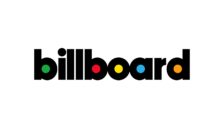Jack Antonoff talked with Variety about work with Kendrick Lamar in GNX.
Antonoff, for his part, densely laid in bits of guitar and Mellotron to build out the world of “Luther.” “If you really listen to the record, obviously Kendrick and SZA are right there and the beat’s right there and the melody,” he says. “But there’s all this stuff dancing around, like in between them. I wanted to go overboard with the presentation of how special it could be. I ended up sitting alone for a really long time carving out all these little spaces.”
The meticulous nature of “GNX” only intensified as the record sped toward completion. Antonoff recalls working on final mixes as late as four in the morning, just hours before the album’s release. Its impact was instantly tangible — “Luther” held court atop the Billboard Hot 100 for 13 weeks, while “Not Like Us” picked up Grammys for song and record of the year. But for the producers who helped bring “GNX” to life, it signified that taking risks — sonically and creatively — was the only path forward.













